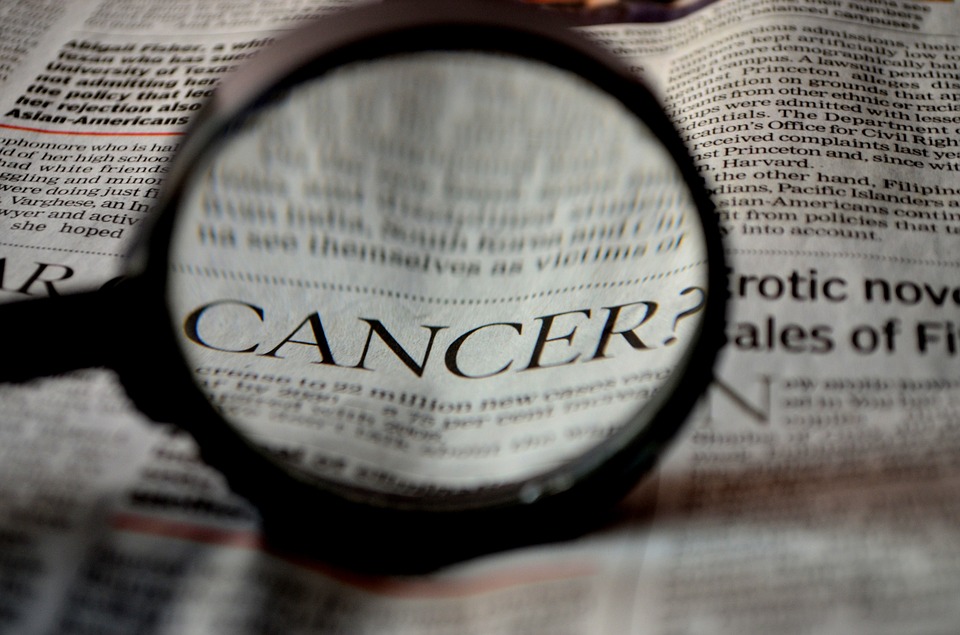Prostate cancer deaths surpass those from breast cancer in the U.K. for the first time
03/01/2019 / By Vicki Batts

Breast cancer has long been one of the most common cancers, as well as one of the biggest killers. But in the United Kingdom, prostate cancer has turned into an even bigger threat. As the Daily Mail reports, nearly 12,000 U.K. men are losing their lives to prostate cancer annually. More, the disease has replaced breast cancer as the third-leading cause of cancer-related deaths.
Despite the deadliness and rising numbers of prostate cancer cases, it seemingly remains in breast cancer’s shadow. Worse, little is being done to raise awareness on how men can prevent prostate cancer — and natural methods to prevent it are all but being suppressed by the corrupt cancer industry and their ilk.
Prostate cancer on the rise
According to the Daily Mail, an estimated 11,800 men are succumbing to prostate cancer every year across the pond — which means one person is dying from prostate cancer every 45 minutes or so. Conversely, 11,400 women are expected to die from breast cancer yearly. So, prostate cancer has risen to the third biggest cancer threat in the U.K., behind only lung and colon cancers.
As sources explain, prostate cancer research receives less than half the amount of funding that breast cancer does — which means the science on prostate cancer is lagging nearly 10 years behind that of breast cancer, as well.
While some say that the aging population is to blame for the spike in prostate cancer cases, that may not be all there is to it.
Vitamin D critical in prostate cancer prevention
While the cancer industry (really, the entire medical establishment) is loath to admit that a nutrient could actually help prevent cancer, the truth is that vitamin D is an essential nutrient and it can help prevent prostate cancer. Specifically, research has shown that vitamin D deficiency may contribute to the risk of developing prostate cancer. Studies have also indicated that a lack of vitamin D can cause prostate cancer to be more aggressive and harder to treat.

As sources explain, studies have been pointing to vitamin D deficiency as a risk factor for prostate cancer for several years now. Harvard Prostate Knowledge, the brain child of Harvard Medical School and Harvard Health Publications, reported on a study which found that prostate cancer tumors become more aggressive when a man is vitamin D deficient. The research, which was published in the journal Clinical Cancer Research, found that that “the lower the vitamin D level, the more aggressive the prostate cancer.”
A study from 2015 also showed that vitamin D supplementation could slow the progression of less aggressive prostate cancer — and in some cases, it may reverse it entirely, eliminating the need for radiation therapy or surgery.
Hailing from the Medical University of South Carolina, Bruce Hollis, Ph.D., commented, “The cure — meaning surgery or radiation — is probably worse than the disease, so they wait a year and then do another biopsy to see where the patient stands.”
For many patients, conventional medical treatment isn’t really worth the suffering; their cancers aren’t aggressive enough to warrant treatment, but still, people like Hollis want to find an alternative. With the help of his team, Hollis explored the effects of vitamin D supplementation on men with low-grade prostate cancer — and the results were shocking. After a year of supplementation, the men displayed a 55 percent decrease in their tumor grading — and in some cases, their tumors disappeared completely.
“Cancer is associated with inflammation, especially in the prostate gland,” says Hollis. “Vitamin D is really fighting this inflammation within the gland,” he explained. Hollis also noted that the patients in his program were supplemented with “normal body levels” of the nutrient and that a more therapeutic, pharmacological dose hadn’t even been tried yet.
It’s no wonder that these findings have hardly been reported on; they conflict with the cancer industry’s mantra that chemo cures everything.
Sources include:
ClinCancerRes.AACRJournals.org
Submit a correction >>
Tagged Under:
Big Pharma, breast cancer, cancer cures, cancer industry, cancer research, men's health, prevention, Prostate cancer, supplements, United Kingdom, vitamin D deficiency
This article may contain statements that reflect the opinion of the author




















